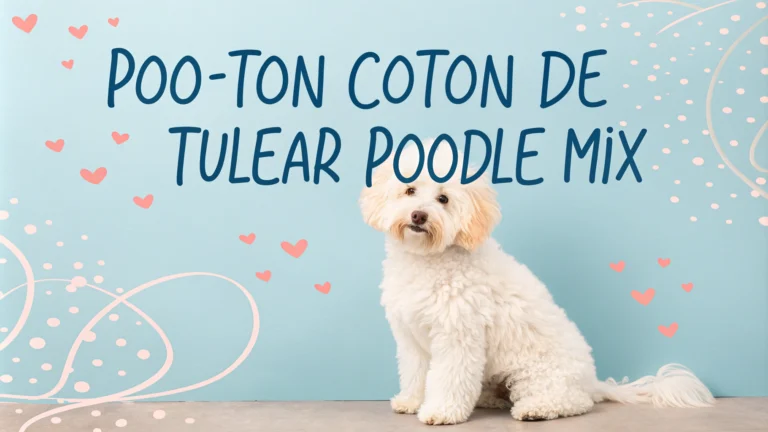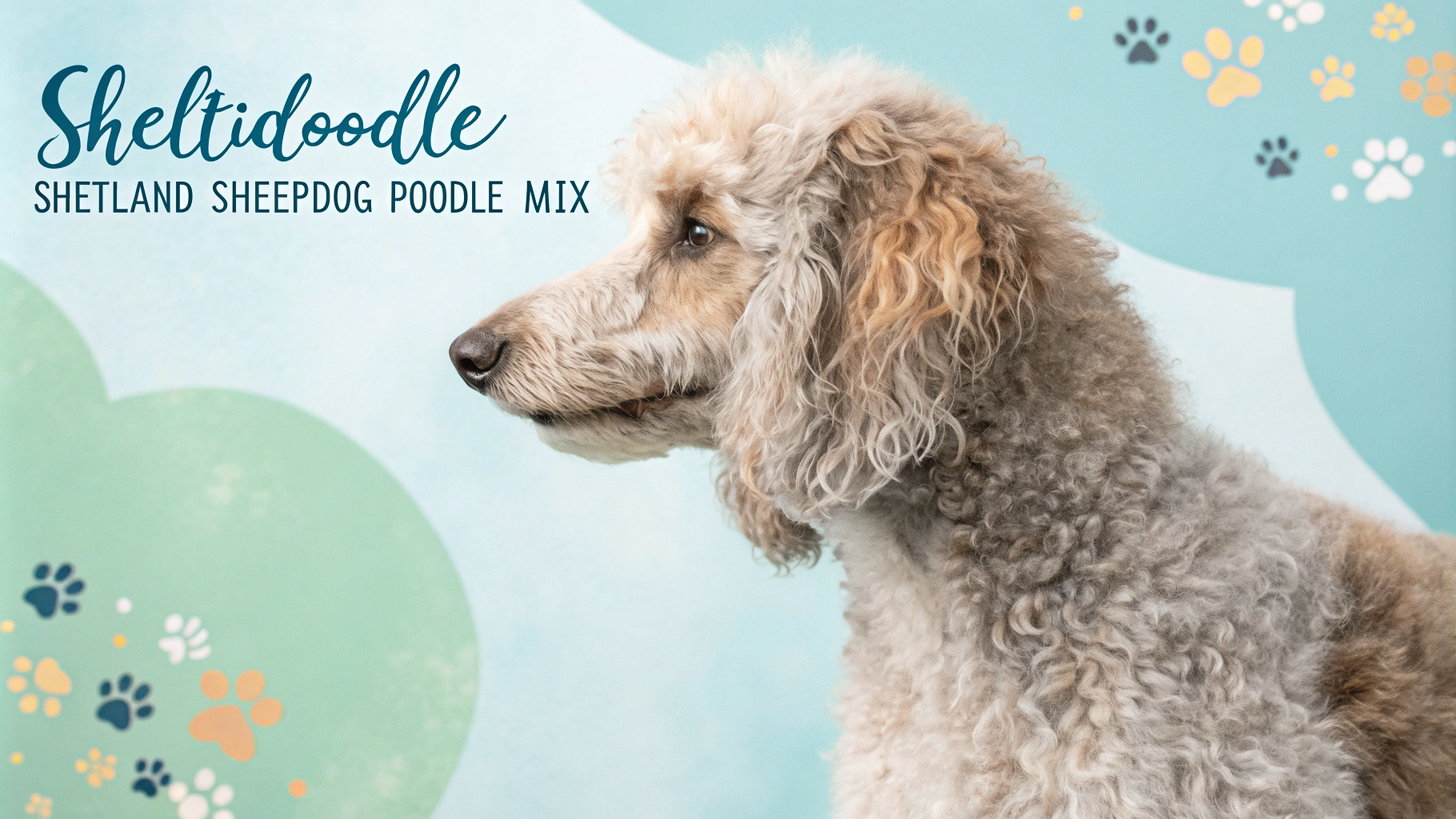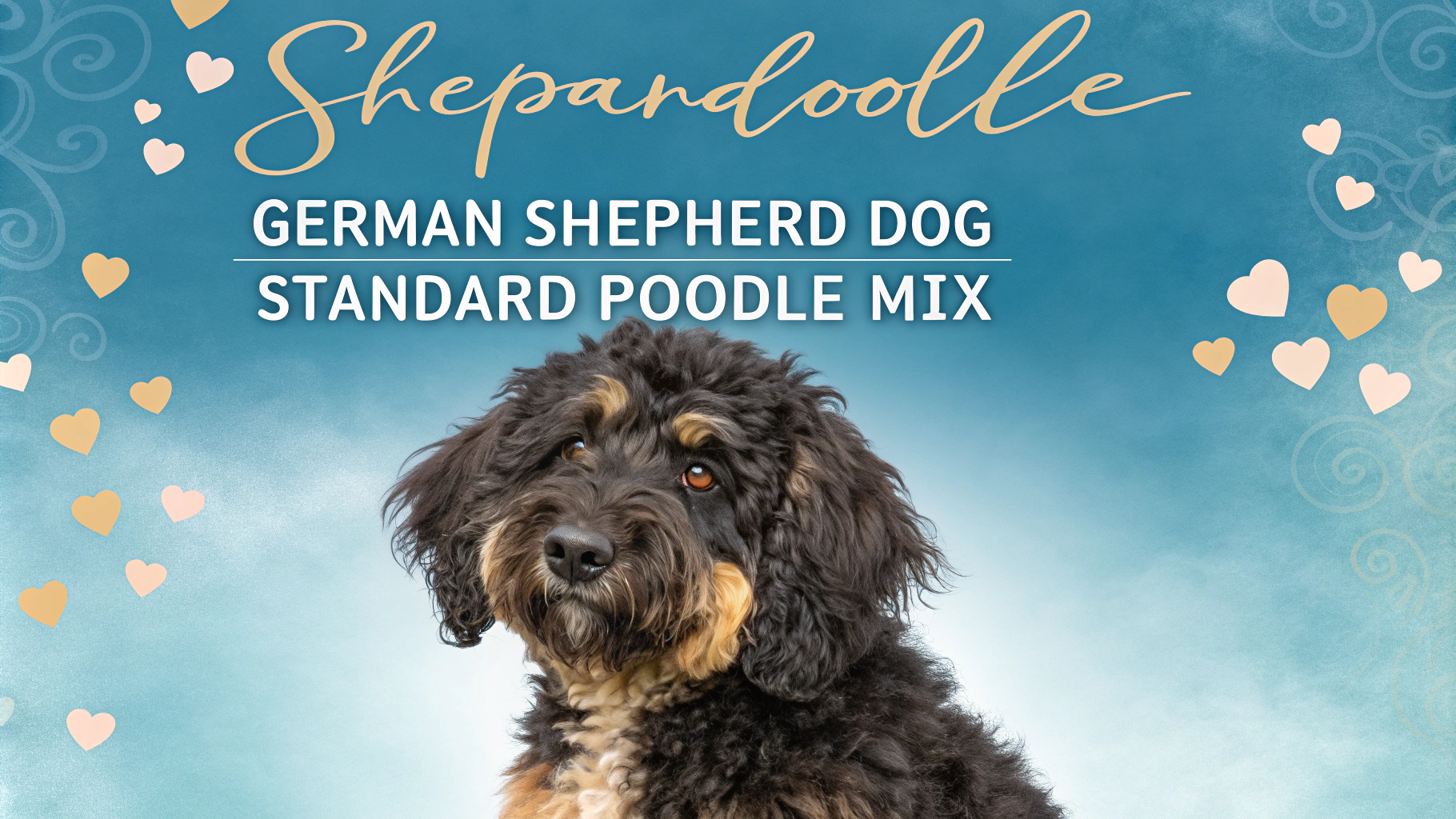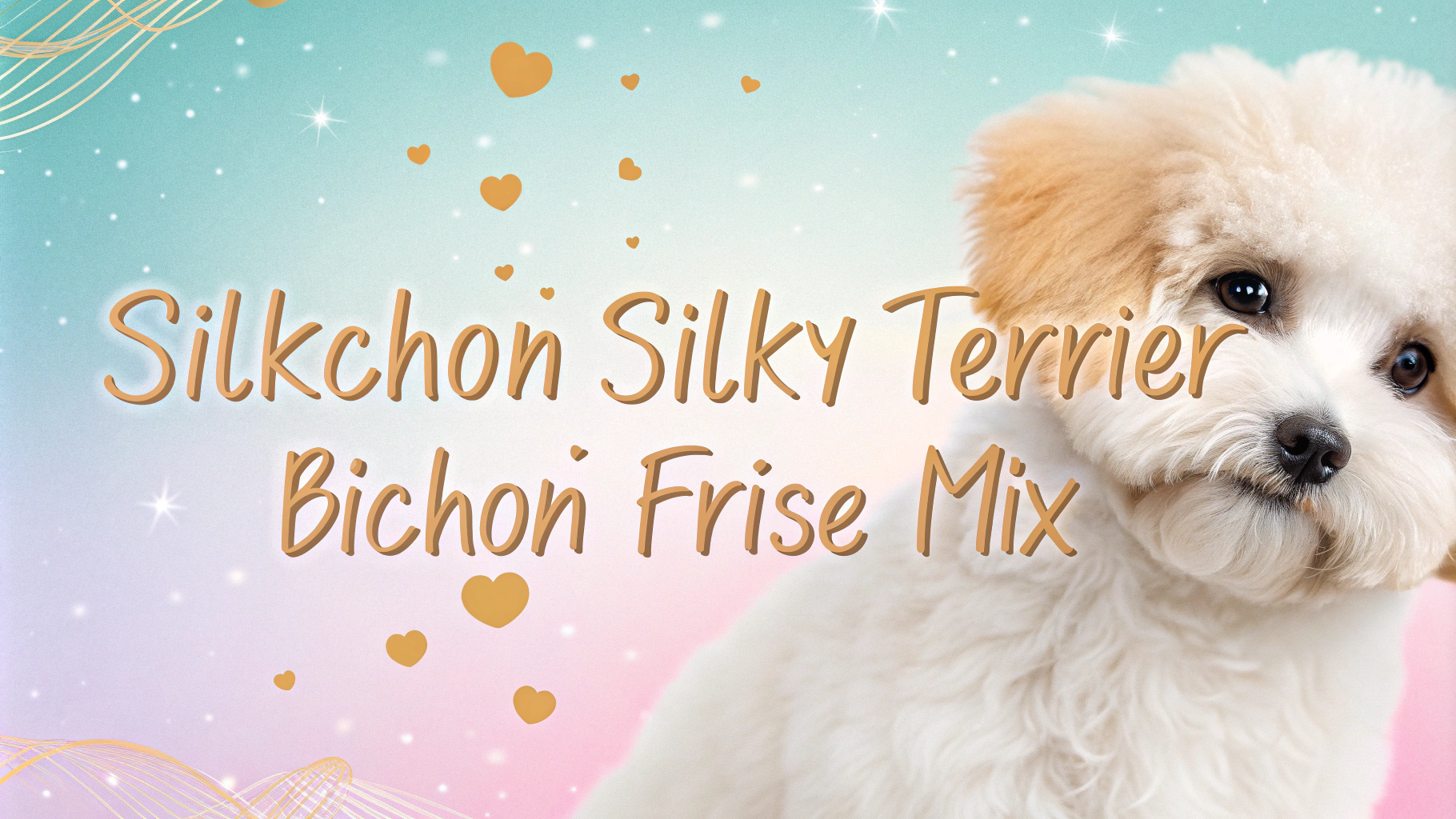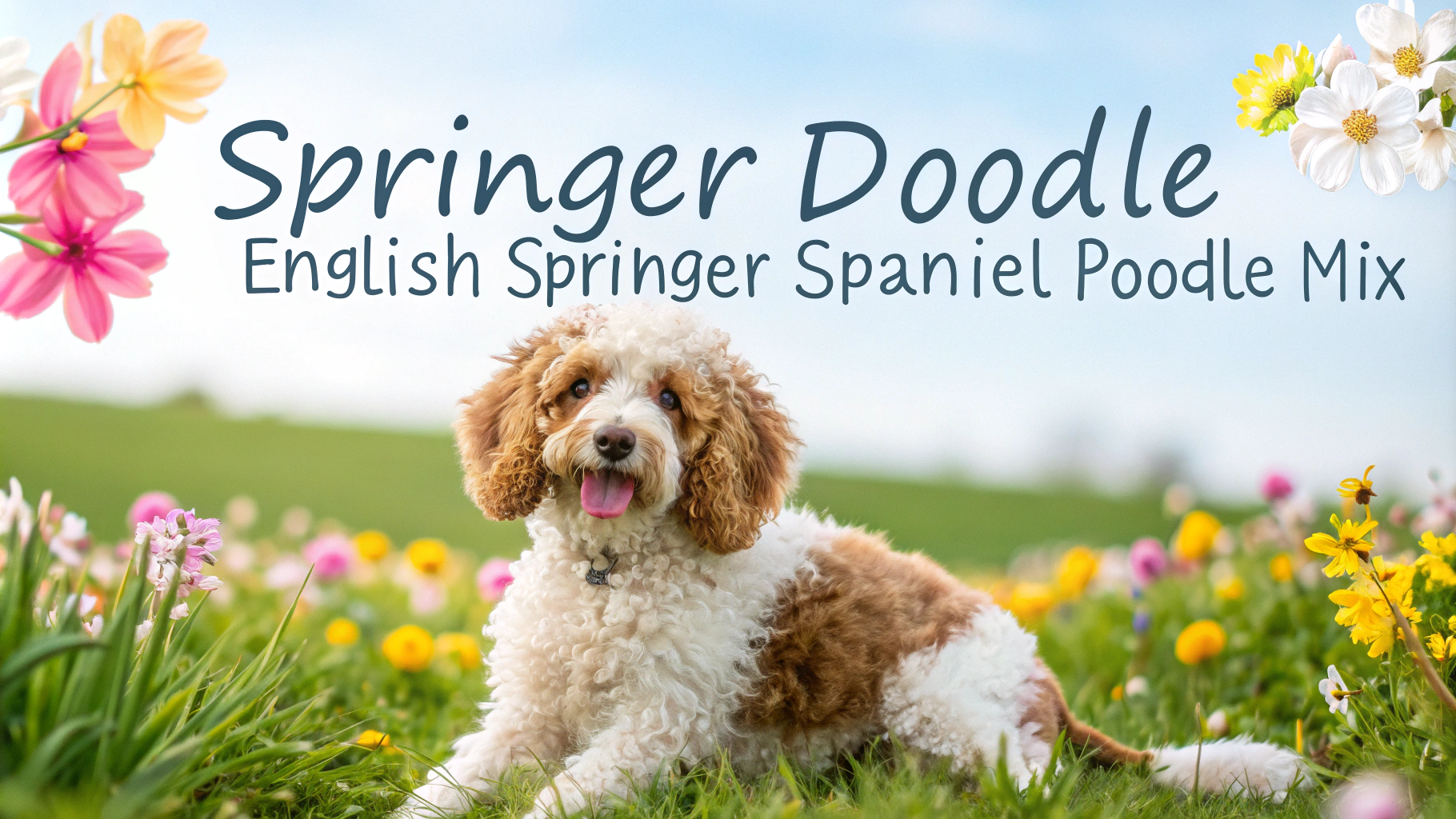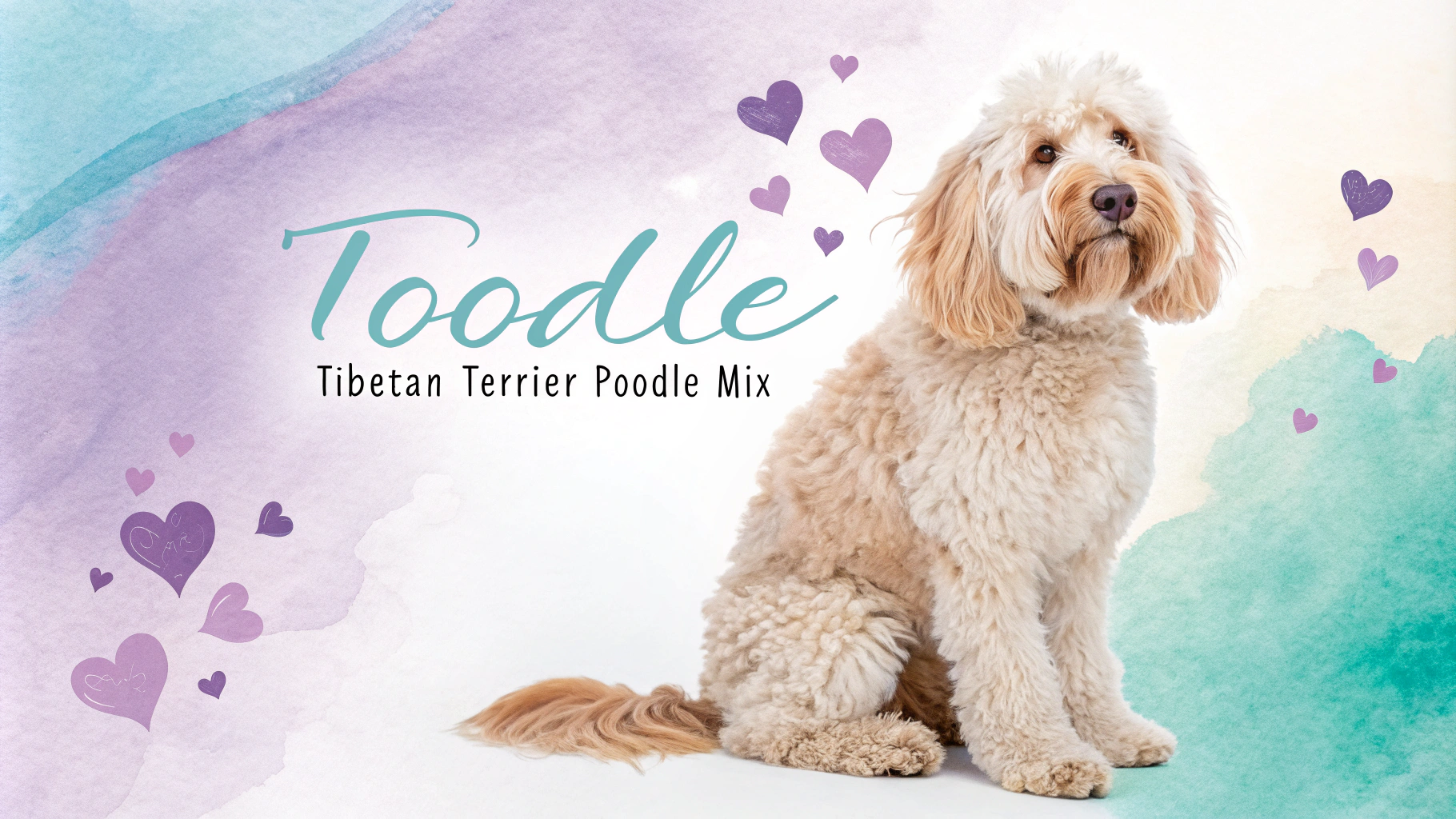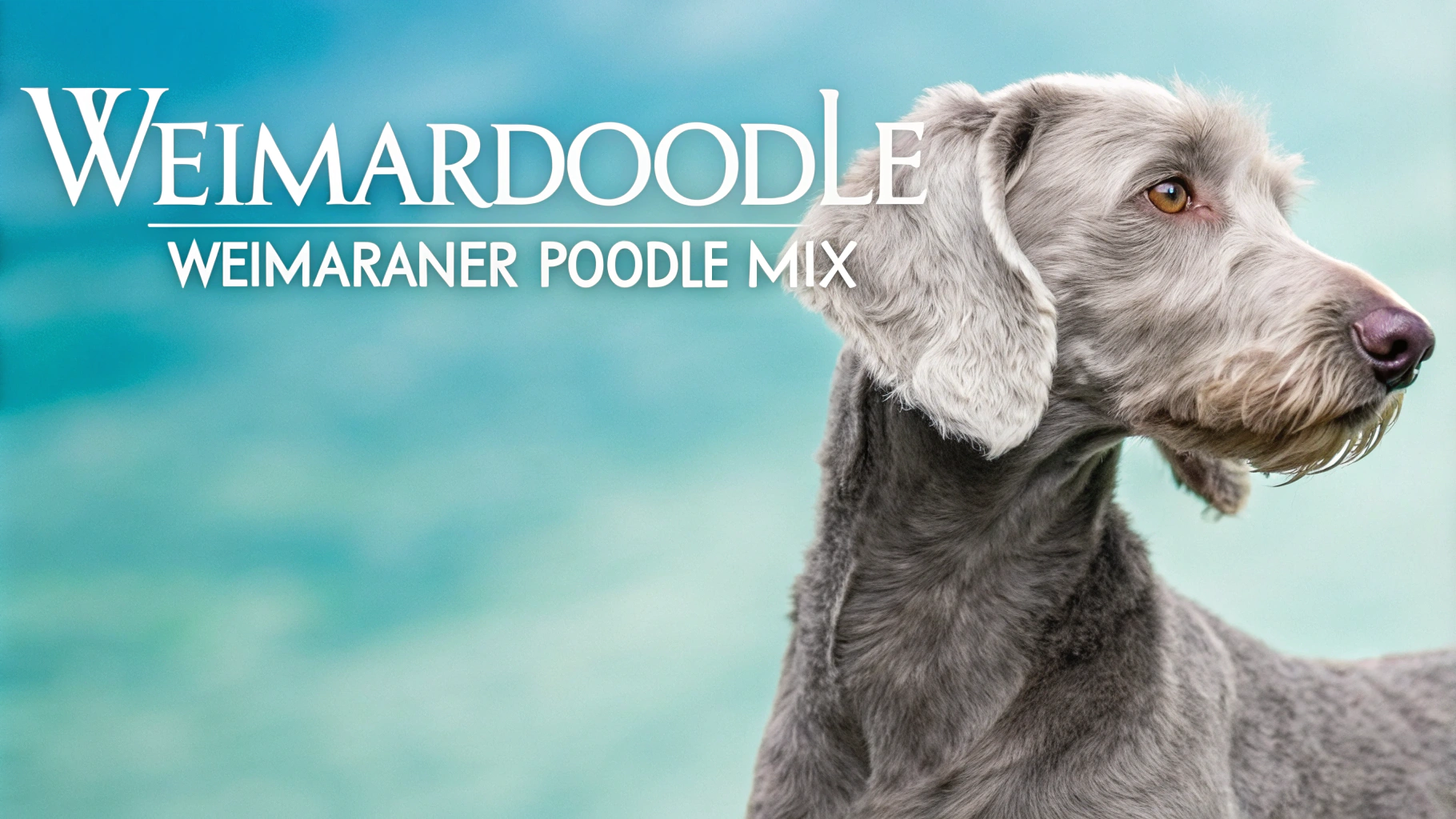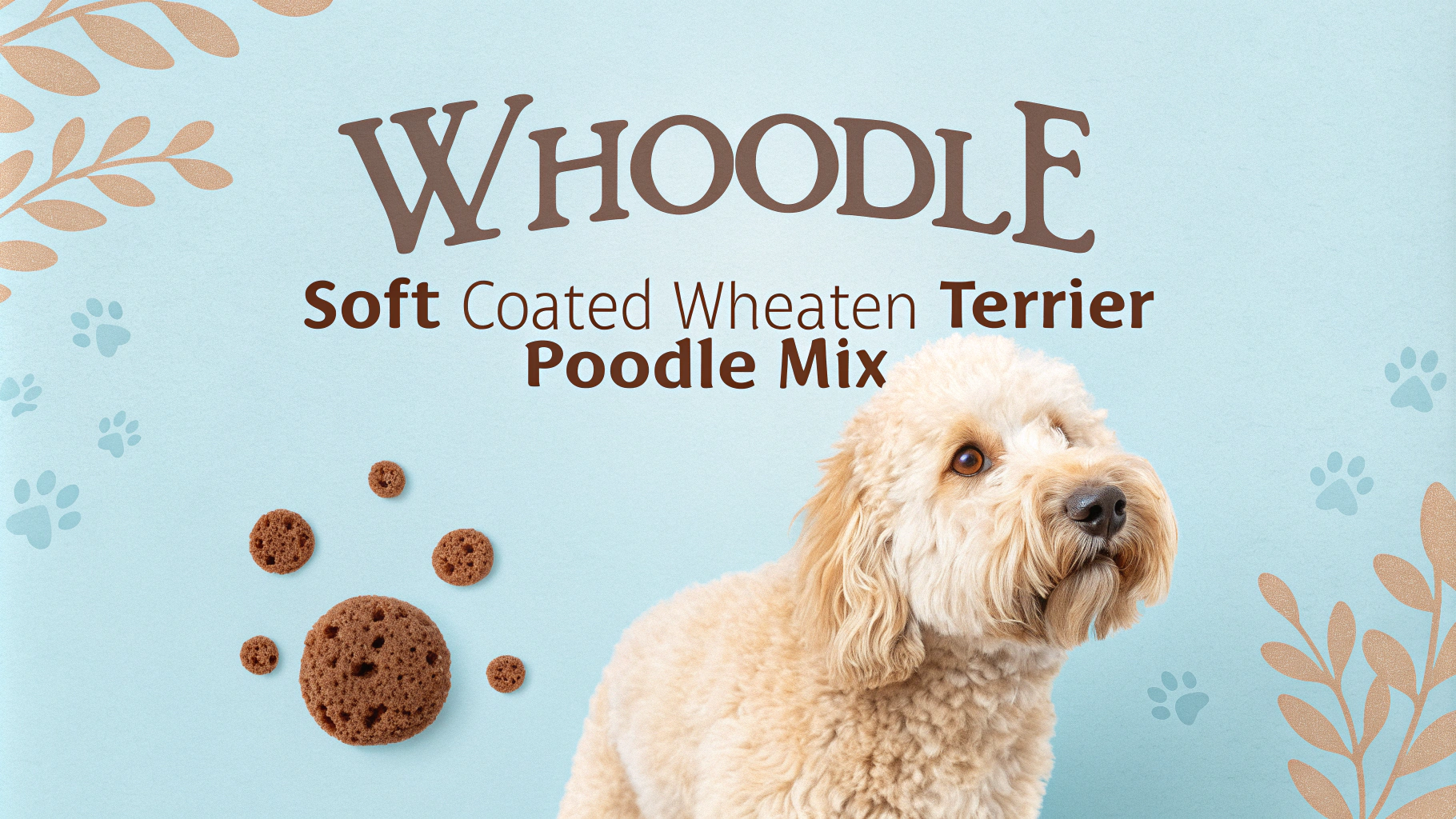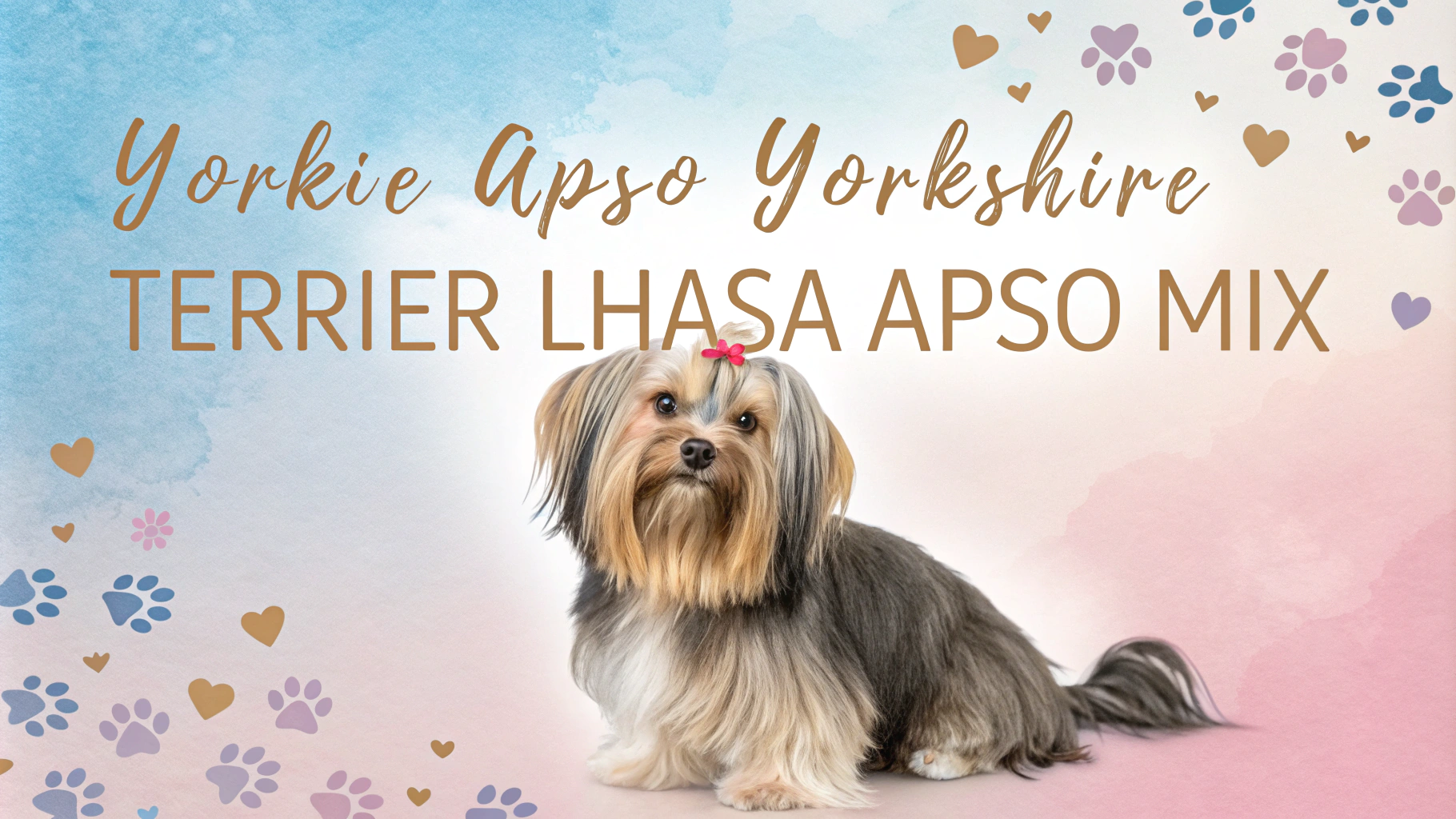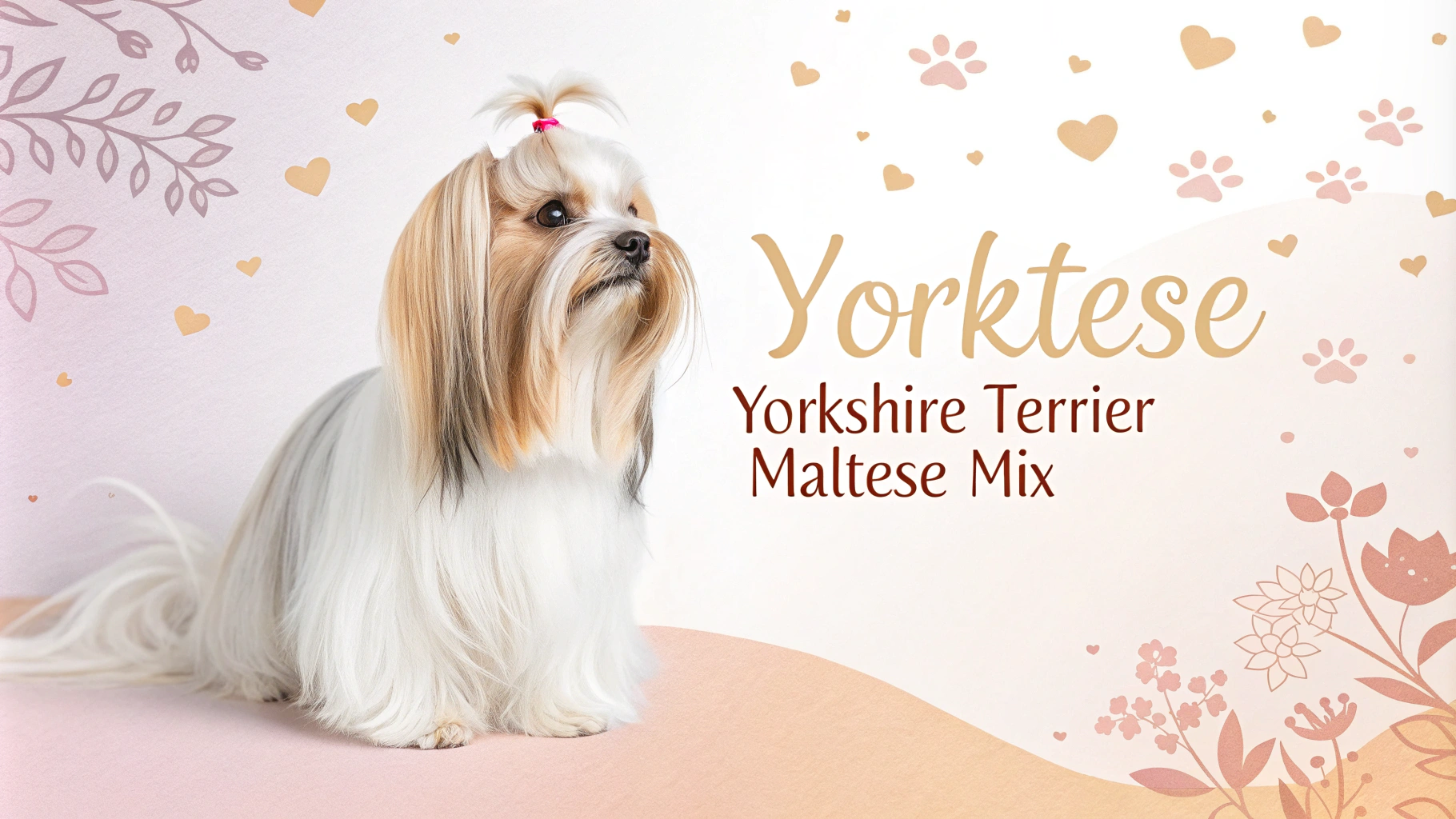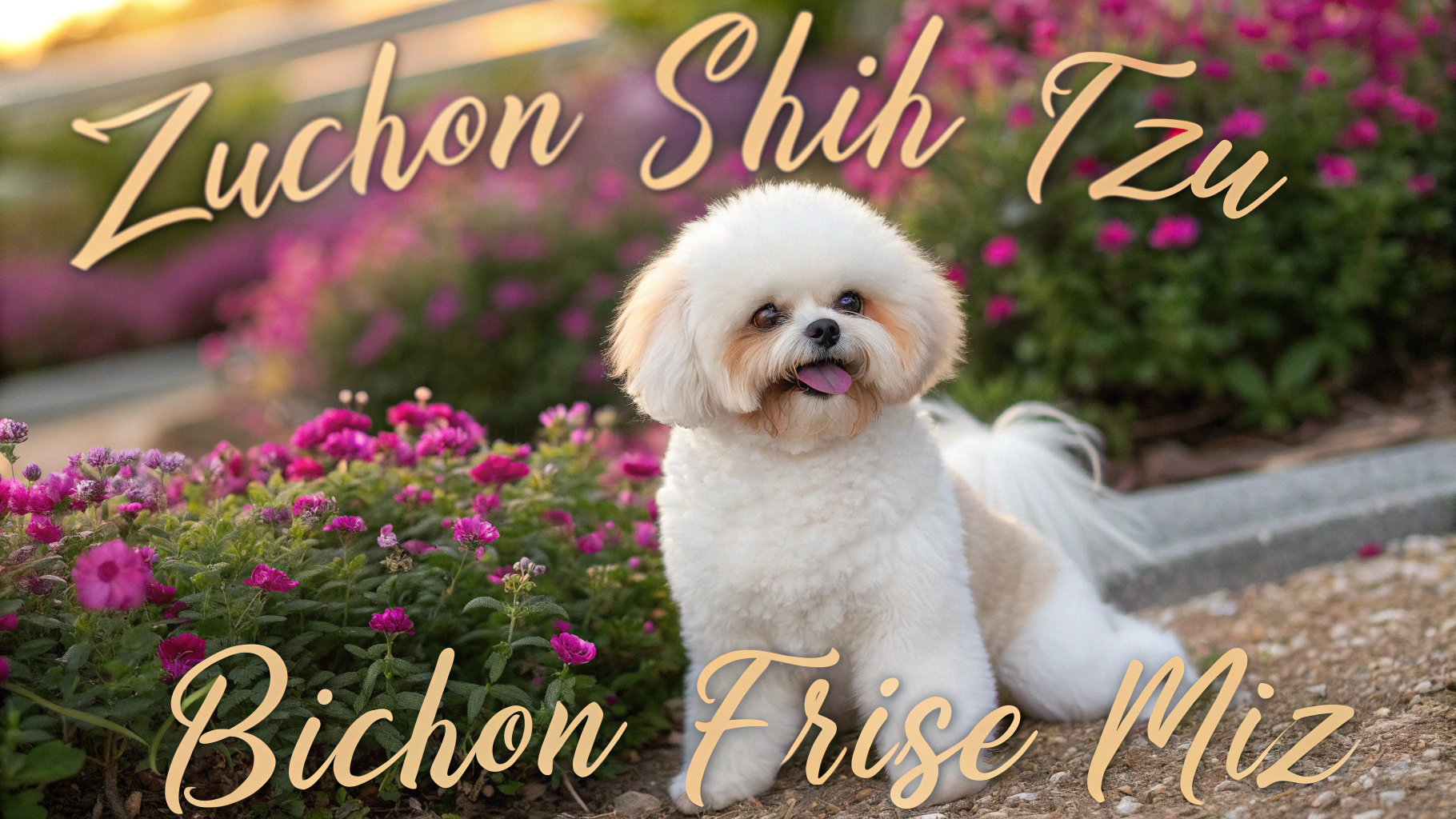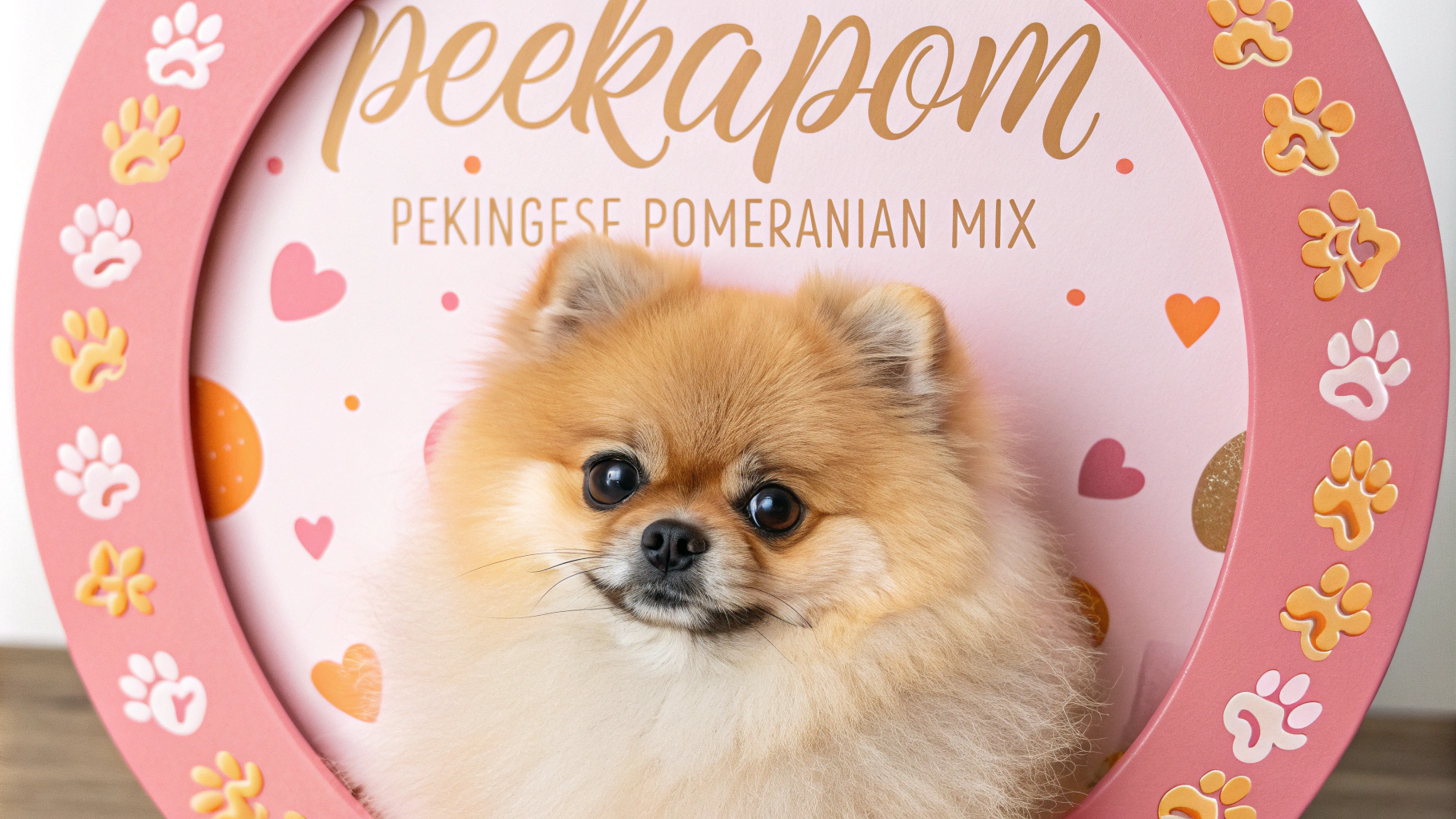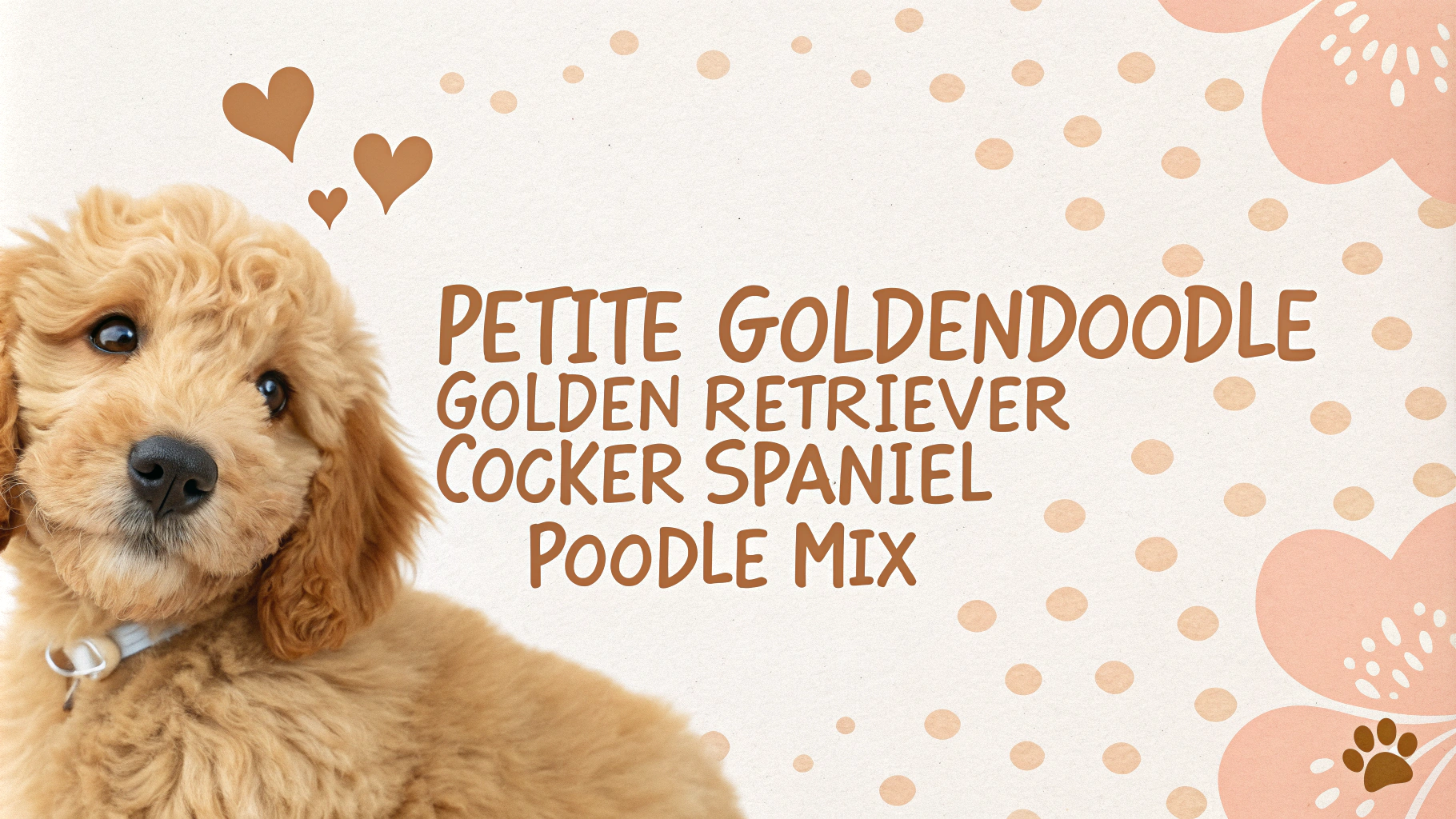The Poo-Ton, also known as the Cotonpoo or Cotondoodle, is a delightful mixed breed resulting from crossing a Coton de Tulear with a Poodle. This designer dog combines the best traits of both parent breeds, creating a charming, intelligent, and affectionate companion. Poo-Tons are known for their hypoallergenic coat, playful nature, and adaptability to various living situations.
Key Facts
- Size: Small to medium, typically 8-15 inches tall and weighing 8-20 pounds
- Coat: Soft, fluffy, and hypoallergenic
- Colors: White, cream, apricot, or combinations thereof
- Lifespan: 12-16 years
- Temperament: Friendly, intelligent, and affectionate
- Good with: Families, seniors, singles, and other pets
- Exercise needs: Moderate
- Grooming: High maintenance, requiring regular brushing and professional grooming
Character Traits
Poo-Tons inherit a delightful blend of personality traits from their parent breeds. They are typically friendly, affectionate, and intelligent, making them excellent companions for various households. These dogs are known for their playful and energetic nature, often retaining puppy-like behavior well into adulthood. Poo-Tons are generally good with children and other pets, thanks to their gentle and sociable disposition.
One of the most notable characteristics of the Poo-Ton is their high level of intelligence, inherited from both the Poodle and Coton de Tulear. This makes them highly trainable and eager to please their owners. They also tend to be alert and observant, often making good watchdogs despite their small size. Poo-Tons are known for forming strong bonds with their families and can be somewhat prone to separation anxiety if left alone for extended periods.
These dogs are typically adaptable and versatile, thriving in various living situations from apartments to large homes with yards. They have a moderate energy level, enjoying both playtime and cuddle sessions with their owners. Poo-Tons are often described as charming and entertaining, with a knack for amusing their families with their antics and expressions.
History & Origins
The Poo-Ton is a relatively new designer dog breed, likely originating in the late 20th or early 21st century as part of the growing trend of creating mixed breeds with desirable traits. While the exact origins of the Poo-Ton are not well-documented, understanding the history of its parent breeds provides insight into this mixed breed’s background.
The Poodle, one of the parent breeds, has a long and distinguished history. Originating in Germany as a water retriever, Poodles later became popular in France and were refined into the elegant, intelligent dogs we know today. They come in three size varieties: Standard, Miniature, and Toy, all of which may be used in breeding Poo-Tons.
The Coton de Tulear, the other parent breed, has a more recent but equally fascinating history. Originating on the island of Madagascar, these dogs were once the exclusive companions of Malagasy royalty. They were named after the port city of Tulear and for their cotton-like coat (“coton” is French for cotton). Coton de Tulears were introduced to Europe and North America in the 1970s and have since gained popularity for their charming personality and hypoallergenic coat.
The creation of the Poo-Ton likely aimed to combine the Poodle’s intelligence and low-shedding coat with the Coton de Tulear’s affectionate nature and adaptability. While not recognized by major kennel clubs as a standardized breed, Poo-Tons have gained popularity among dog enthusiasts seeking a small, intelligent, and hypoallergenic companion.
Health Concerns
The Poo-Ton, like many mixed breeds, can inherit health issues from both parent breeds. Common concerns may include:
- Eye problems: Both Poodles and Coton de Tulears can be prone to various eye conditions, including cataracts and progressive retinal atrophy (PRA).
- Hip dysplasia: This genetic condition affecting the hip joint is more common in Poodles but can occur in Poo-Tons.
- Patellar luxation: A condition where the kneecap dislocates, which is seen in both parent breeds.
- Dental issues: Small breeds often have dental problems, so regular teeth cleaning is essential.
Regular veterinary check-ups, a balanced diet, and proper exercise can help mitigate some of these health risks. It’s also important to obtain a Poo-Ton from a reputable breeder who conducts health screenings on parent dogs.
Exercise Needs
Poo-Tons are generally active and energetic dogs that require regular exercise to maintain their physical and mental well-being. Their exercise needs typically include:
- Daily walks: At least 30-45 minutes of walking per day, split into two sessions if possible.
- Playtime: Interactive play sessions with toys, fetch, or agility exercises.
- Mental stimulation: Puzzle toys, training sessions, and new experiences to keep their minds engaged.
While they have moderate energy levels, Poo-Tons can adapt to their owner’s lifestyle. They enjoy being active but are also content to relax at home after sufficient exercise. It’s important to note that under-exercised Poo-Tons may develop behavioral issues or become overweight.
Space Requirements
Poo-Tons are adaptable dogs that can thrive in various living situations, making them suitable for both apartments and houses. Their space requirements include:
- Indoor space: A comfortable area for sleeping, eating, and playing indoors.
- Outdoor access: Regular access to a secure outdoor area for exercise and bathroom breaks.
- Play area: Space for interactive play and training sessions, either indoors or outdoors.
While they can adapt to smaller living spaces, Poo-Tons benefit from having some room to move around. They don’t require a large yard but do appreciate outdoor time for exploration and play. Regardless of living space, ensuring they receive adequate exercise and mental stimulation is crucial for their well-being.
Nutrition & Feeding
Proper nutrition is essential for maintaining the health and well-being of a Poo-Ton. Their dietary needs include:
- High-quality dog food: Choose a premium dog food formulated for small to medium-sized breeds with moderate activity levels.
- Portion control: Measure food carefully to prevent overfeeding and obesity, which can be common in small breeds.
- Meal frequency: Typically, 2-3 small meals per day are recommended for adult Poo-Tons.
- Fresh water: Always provide clean, fresh water.
The specific amount of food will depend on the dog’s age, size, activity level, and metabolism. Consult with a veterinarian to determine the best diet plan for your individual Poo-Ton. Be cautious with treats and table scraps, as these can contribute to weight gain. Regular monitoring of your dog’s weight and body condition can help ensure they maintain a healthy physique.
Grooming Tips
The Poo-Ton, a mix between a Coton de Tulear and a Poodle, typically inherits a soft, fluffy coat that requires regular grooming to maintain its health and appearance. Daily brushing is recommended to prevent matting and tangling, especially in areas prone to knots like behind the ears and under the legs. Use a slicker brush or metal comb to work through the coat gently.
Regular bathing every 4-6 weeks is usually sufficient, unless the dog gets particularly dirty. Use a mild dog shampoo and conditioner to keep the coat soft and manageable. Pay special attention to eye cleaning, as both parent breeds can be prone to tear staining. Trim the hair around the eyes regularly to prevent irritation.
Professional grooming every 6-8 weeks can help maintain the coat’s shape and length. During these sessions, the groomer can also trim nails, clean ears, and address any specific coat issues. Establish a dental care routine with regular tooth brushing to prevent dental problems common in small dog breeds.
Training Approach
Poo-Tons are generally intelligent and eager to please, traits inherited from both parent breeds. They respond well to positive reinforcement techniques, including treats, praise, and play. Start training early to socialize the puppy and establish good behaviors.
Consistency is key in training a Poo-Ton. Use short, frequent training sessions to maintain their attention and prevent boredom. These dogs can be sensitive, so avoid harsh corrections and focus on rewarding desired behaviors.
Incorporate mental stimulation into training sessions with puzzle toys and interactive games. This helps prevent boredom and reduces the likelihood of destructive behaviors. Obedience training should cover basic commands like sit, stay, come, and leave it. Many Poo-Tons excel in agility and trick training, which can be a fun way to bond with your dog and provide additional mental and physical exercise.
Address any potential separation anxiety early by gradually accustoming your Poo-Ton to being alone for short periods. Crate training can be beneficial for both house training and providing a safe space for your dog when unsupervised.
